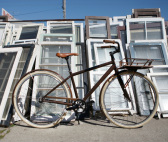
So. Shifting gears a bit.... I have been writing a lot about issues of energy production and consumption, and related impacts on the environment and people. I will continue with this soon - I think it is important and I believe that these issues will have an increasingly noticeable effect on our daily lives for some time to come.
But today, I want to talk about wellness - health and well-being - and about some ideas that my friend Leah is thinking about. Leah is a graduate of Chatham's MS in Counseling Psychology program - she is a very competent, bright, and energetic woman. When she introduces me to friends or colleagues, she refers to me as her mentor. A little secret -- this is kind of backwards, as I most definitely see her as my mentor!
Leah has a wonderful job teaching yoga to children K-8 in a laboratory school associated with a university in Pittsburgh. She is thinking about developing a Wellness Program for her students, so we sat down to talk about how to do this. Leah had done some preliminary lit searches, and found that much of the research on childhood wellness is actually limited to studies about how to address childhood obesity - a worthy cause, for sure, but not necessarily representative of all of the aspects of a young person's life that contribute to (or detract from) wellness. Other things we read focused on physical, mental, social, and emotional health - how to eat right, exercise, manage feelings, solve problems, get along with others, learn in school.
Leah and I talked about our own childhoods and children, and brainstormed about what other domains of wellness, in the best of all possible worlds, might be worth presenting to kids. As we talked, Leah and I realized that we were both intrigued by a more comprehensive perspective of wellness that would embrace a child's ability to live a well-balanced life - weathering ups and downs in pretty healthy ways, knowing when and how and whom to ask for help, understanding one's own gifts and "growing edges" - in addition to the more traditional aspects of wellness described above. For us, wellness is not an end or a goal; it is a life-long process of making decisions, working with others, acting and thinking and feeling. Individuals who have the skills, knowledge, or wisdom to live (or try to live) in such ways will be able to sustain themselves through much of what life throws at them - not avoiding pain, loss, hurt, or mistakes, but thinking and adapting in pretty healthy ways, sooner or later, when they get off-track.
So we have mental, physical, social, and emotional health, and more vague, but probably also very important, life-skills and self-awareness domains that might constitute wellness. I would probably add a couple of other domains to the mix -- one area of interest to me is that of financial health. What can we do for our children that fosters healthy practices and perspectives related to money, spending, and saving? I would also add something about self-in-the-universe -- that is really not a good way of saying it, I know - but I think it is very cool to parent or teach in ways that keep children's questions about their place in the universe active, that foster imaginings about their purpose in life. Do they feel connected to something much bigger than themselves? Do they have a sense of awe and wonder about life and its mysteries? And finally - probably related to the whole self-in-the-universe thing - I would add something about humans and nature - the place or role of humans in the non-human natural world - again, nurturing curiosity and questions more than providing easy answers.
How does this sound so far? What, if anything, would you add or take out? Is any of this the least bit relevant for you or your kids? Think back to your own early years -- what domains of wellness were you exposed to - directly or indirectly? In school or at home, or both? Did you figure out all of the important stuff on your own? Are there things that you wish you had been exposed to that you were not? Would it have made any difference?
I am curious about whether or not you think that adults (whether in the family, communities, or schools) have the capability of providing a wellness perspective to kids in a way that can be truly beneficial to them. How important are we as models for kids - models of what to be or what not to be? Or are we talking here about life lessons that must eventually be learned on one's own, through trial and error? From a larger perspective, does what we do or talk about have the potential of effecting change in a community? When I post something to my blog, can it make a difference? Or do we live by Darwinian principles, each struggling and adapting on our own, and sinking if we just can't do it?
So much of my identity as a citizen, a psychologist, a professor, and a parent is wrapped up in thinking about wellness, growth, and change in positive ways. I wonder about what helpful roles, if any, I can play in certain situations - by educating, providing feedback, modeling, listening, questioning.... OR by being quiet and getting out of the way - maybe just by being a witness from close-up or from far away. I know that my own wellness has ultimately been my own responsibility - and I also know that I have had witnesses and supporters who have helped me along the way.
So -- I can say with certainty that I learned much from my parents and other adults about health and well-being and the "good life" - working and playing hard, appreciating music and other of life's gifts, taking care of others - lessons that were enriched by my own life experiences, but rooted also in my relationships with these people. I can say with certainty that I learned from their courage and derring-do, and have thus been able to take important risks in my own life.
And, more specifically, I can say with certainty that I benefited from my dad's time, patience, and energy as he taught me to ride a bike - much easier than learning on my own :) Wish me luck as I head back home on my trusty new vehicle!
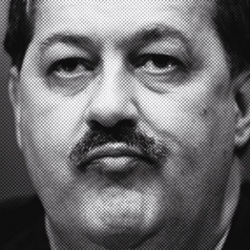
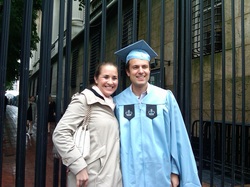
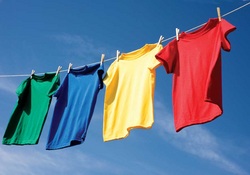
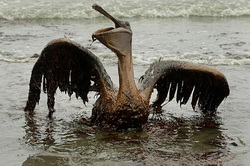
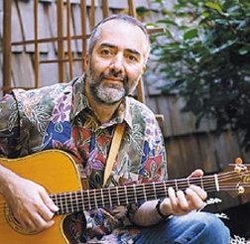
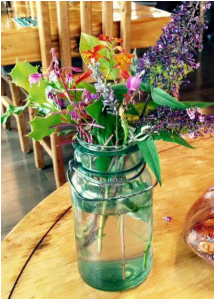

 RSS Feed
RSS Feed
